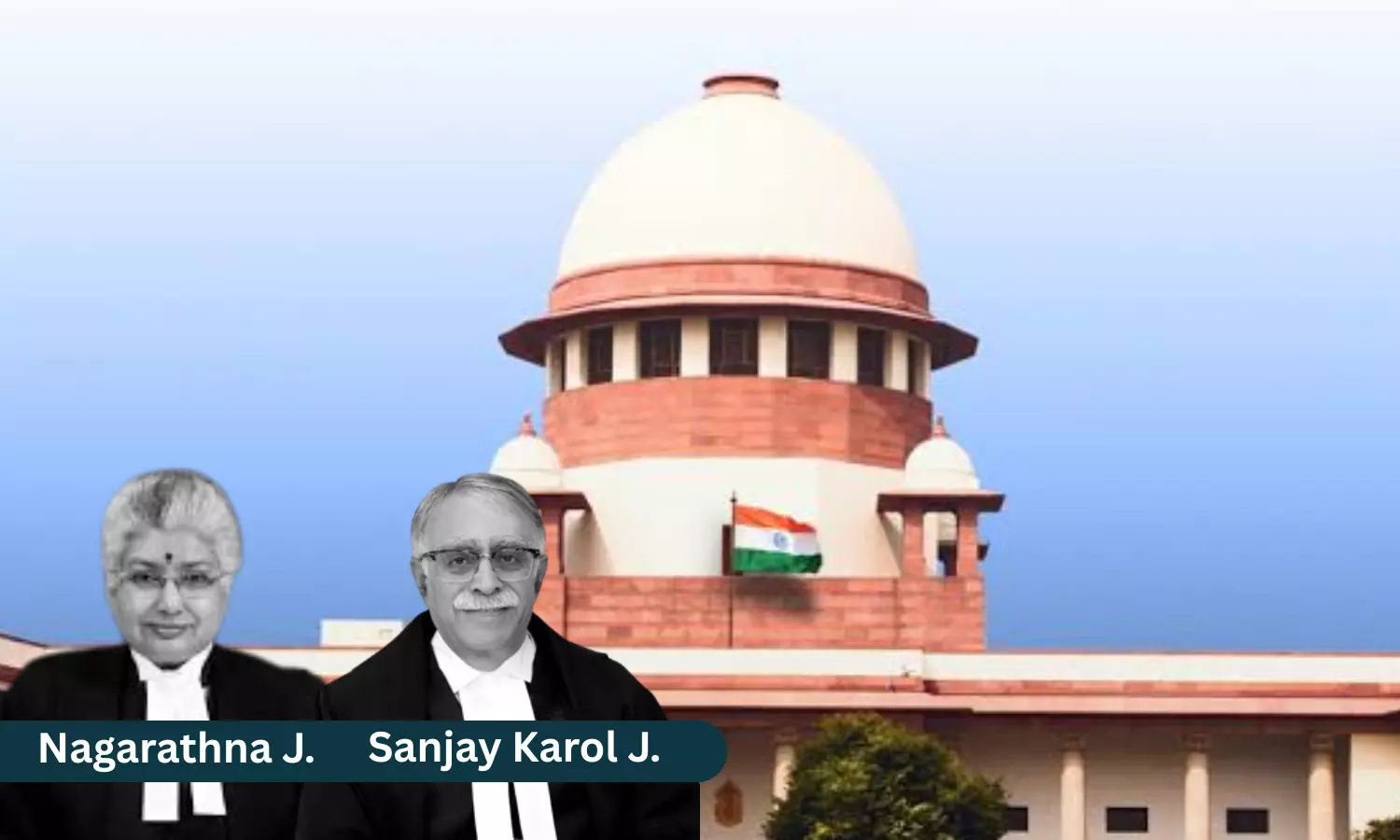
Justice B.V. Nagarathna, Justice Sanjay Karol, Supreme Court
Life Sentence Can't Be For ‘Remainder Of Life’ Resulting In Convict Losing Right To Remission: Supreme Court
 |
|The Supreme Court held that the Madhya Pradesh High Court was not right in converting death penalty to life sentence for the ‘remainder of the life’ in a murder case.
The Supreme Court has held that converting a death penalty to a life sentence for the “remainder of life” would deny a convict the right to seek remission under law.
A Division Bench of Justice B.V. Nagarathna and Justice Sanjay Karol held, “We find that the High Court was not right while converting the death penalty into life sentence to say that the life sentence will be for the ‘remainder of the life’. This would result in the appellant losing his right to seek remission of his sentence.”
The Court added, “In the circumstances, we modify that portion of the order to say simply, that it is life sentence. Liberty is reserved to the appellant herein to seek remission of his sentence in accordance with law.”
Advocate on Record Pragati Neekhra appeared for the Appellant, while Deputy Advocate General Bhupendra Pratap Singh represented the Respondents.
Brief Facts
The case arose from an incident wherein the Appellant, along with two others, forcibly entered the house and assaulted the victims and his family. Both victims later succumbed to their injuries. The Appellant was convicted by the Trial Court under Sections 302 (on two counts), 450, 307,34 and 324 of the Indian Penal Code, 1860, and Section 25(1-B)(b) of the Arms Act, 1959, and was sentenced to death.
The Madhya Pradesh High Court affirmed the conviction but modified the sentence from death penalty to life imprisonment for the “remainder of life” and directed that all sentences imposed on the appellant run consecutively. Aggrieved, the Appellant approached the Supreme Court challenging only the sentence aspect of the High Court's order. The High Court held, “Although, the appellant Vinay has committed a brutal, heinous and cold-blooded murder of three persons, but the present case does not fall within the category of ‘rarest of the rare’ case, hence, the death sentence imposed by the learned trial Court is set aside and he is directed to undergo life imprisonment for remainder of his life.”
The Appellant contended that the direction for consecutive sentences would mean the appellant is not entitled to seek remission after completing fourteen years of incarceration, and urged the Court to direct the sentences to run concurrently instead.
The State contended that there was no merit in the appeal.
Reasoning of the Court
The Court declined to interfere with the concurrent findings of conviction by the Trial Court and the High Court. However, the Court found that directing life imprisonment for the “remainder of life” adversely affected the appellant’s legal right to seek remission.
The Bench stated, “This would result in the appellant losing his right to seek remission of his sentence.”
Further, taking note of submissions regarding consecutive sentences, the Court modified the High Court's direction and held, “We modify the direction of the High Court with regard to the sentences being consecutive and instead, we hold that the sentences run concurrently.”
Accordingly, the appeal was allowed in part.
Cause Title: Vinay Kushwaha v. State of Madhya Pradesh & Anr.
Appearance:
Petitioner: AOR Pragati Neekhra; Advocates Atul Dong, Aniket Patel
Respondents: Deputy Advocate General Bhupendra Pratap Singh; AOR Mrinal Gopal Elker; Advocates Mukesh Kumar Verma, Aditya Chaudhary, Shruti Verma